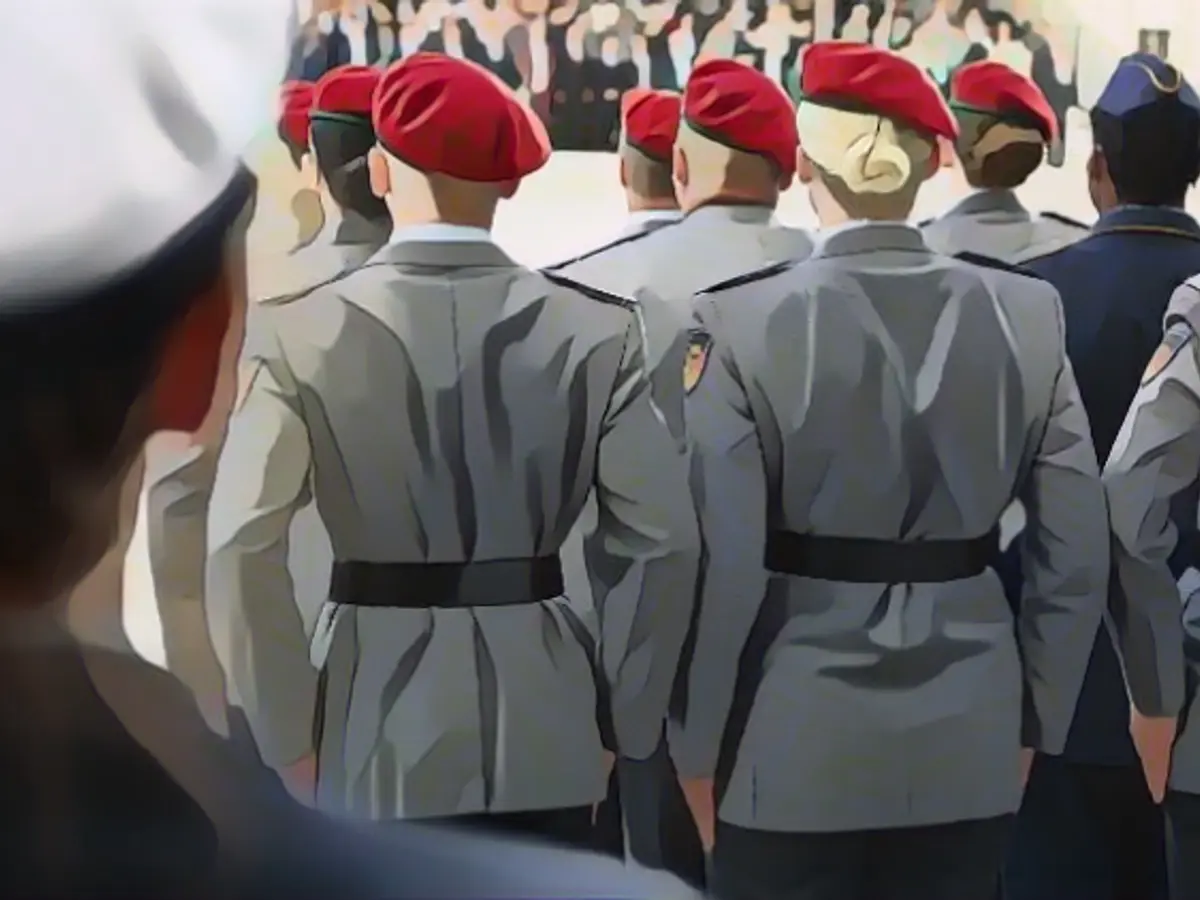"The Swedish model is the only way forward"
Germany needs to become more resilient - to achieve this, the Bundeswehr is to grow from its current 183,000 to 203,000 soldiers in the coming years. Many experts say that this can only be achieved if we make massive changes to the troops, make them more attractive and, above all, find a new way of recruiting young people. Would reinstating compulsory military service, as it existed in Germany until 2011, be the simplest and most effective way?
In retrospect, Defense Minister Boris Pistorius considers the suspension of compulsory military service to have been a mistake. Nevertheless, he is now leaning towards a different strategy: he has brought the "Swedish model" into the discussion. In Sweden, every year group is fully conscripted, but in practice only those who voluntarily decide to do so are drafted. Expert Carlo Masala thinks the model is a good one.

ntv.de: Pistorius is looking at the "Swedish model" - before we do the same: Would reinstating the old compulsory military service even be conceivable today?
Carlo Masala: In 2022, almost 740,000 children were born in Germany. If conscription were reintroduced in the old style, women would probably also have to be included, not just men. Let's take 240,000 out because they are not in good health or don't have a German passport. If perhaps 250,000 of the remaining 500,000 were to actually join the Bundeswehr, that would be a contingent that we would not be able to handle structurally. You need training companies, barracks, material - we no longer have any of that. Rebuilding these structures would cost so much money that I don't see the necessary social consensus. Not even the approval of the Bundestag.
So let's look - like Pistorius - to Sweden: There is no compulsory military service there, but there is an obligation to be mustered. A clever, cost-saving strategy?
In my opinion, the Swedish model is the only viable way forward when it comes to reintroducing compulsory military service. All men and women receive a letter from the Bundeswehr inviting them to be conscripted. This will trigger thought processes in everyone, including those who do not currently have to deal with the Bundeswehr at all. They would have to if they were required to take a physical examination. And of those who, in the course of this process, realize that military service would be of interest to them, the best - let's say - 25,000 are then selected. Of these 25,000 conscripts, perhaps a third will decide to stay in the Bundeswehr for longer. This would certainly solve the personnel problems of the troops.
And the structural effort?
The Bundeswehr would need two structures for a mandatory draft: one that manages to write to every 18-year-old. Secondly, doctors to carry out the physical examination. Compared to what would be necessary for a complete reinstatement of compulsory military service, this seems very feasible.
The FDP argued against compulsory military service on the grounds that the Bundeswehr needs well-paid people who serve voluntarily and out of inner conviction.
This argument misses the point of the Swedish model. After all, it is based on voluntary service. Compulsion only applies to the draft. Those who are drafted are then asked who is willing and who is not. Those who don't want to are automatically out. Those who are interested can then be put through various tests and motivational examinations, and then only the best and most willing are taken. The argument that it is a compulsory service is then not true.
This assumes that you can actually get them interested in military service. With the many shortcomings that German soldiers complain about - poor equipment, too much bureaucracy to replace broken socks, barracks without Wi-Fi - would it be so easy to actually get young people to join the troops?
The crucial point is another: if you write a letter asking people to enlist, they are forced to deal with it. You trigger a thought process in people that I remember from my youth. We all had to deal with the Bundeswehr. An 18-year-old today doesn't have to be aware of the Bundeswehr at all. At the end of this thought process, some people who would never think of joining the Bundeswehr would say: Maybe that's something for me? The decisive factor is that the Swedish conscription requirement reaches people that we don't reach today.
Enough people?
In purely exemplary terms - if we have a total of 500,000 people who are contacted - we will certainly find 30,000 per year who are willing to do military service.
With the experience of the Russian war against Ukraine and the mobilizations on both sides of the front, some experts argue that you can't have enough people. From this perspective, is 30,000 a year a good number?
You don't just need professionals, you also need masses, as the war in Ukraine shows: the first wave of warfare is carried out by professionals, while the second and third waves require reserves. However, the situation in Ukraine cannot be transferred 1:1 to us, because we would always be fighting in a NATO alliance. In other words, the mass would be given by the 30 NATO member states alone. But it is indeed true that our current strength of 180,000 soldiers is extremely stretched for the third largest economy. Incidentally, this also applies to the target size of 203,000.
Frauke Niemeyer spoke to Carlo Masala
Read also:
- Year of climate records: extreme is the new normal
- Precautionary arrests show Islamist terror threat
- UN vote urges Israel to ceasefire
- SPD rules out budget resolution before the end of the year
- In an interview, Defense Minister Boris Pistorius expressed regret over the suspension of compulsory military service in Germany and suggested that revisiting the "Swedish model" could be beneficial for German defense policy, as it combines a conscription system with voluntary service.
- Amidst discussions about reinstating compulsory military service in Germany, expert Carlo Masala defended the Swedish model, arguing that it could potentially solve the Bundeswehr's personnel problems by reaching a wider pool of potential recruits, promoting thought about military service, and selecting only those who are most interested and capable.
- Following the attack on Ukraine, some experts argue that Germany's current armed forces strength of 183,000 soldiers is insufficient, indicating a potential need for a larger and more capable military, such as one that could be achieved through the implementation of a conscription system like the one in Sweden.
Source: www.ntv.de








